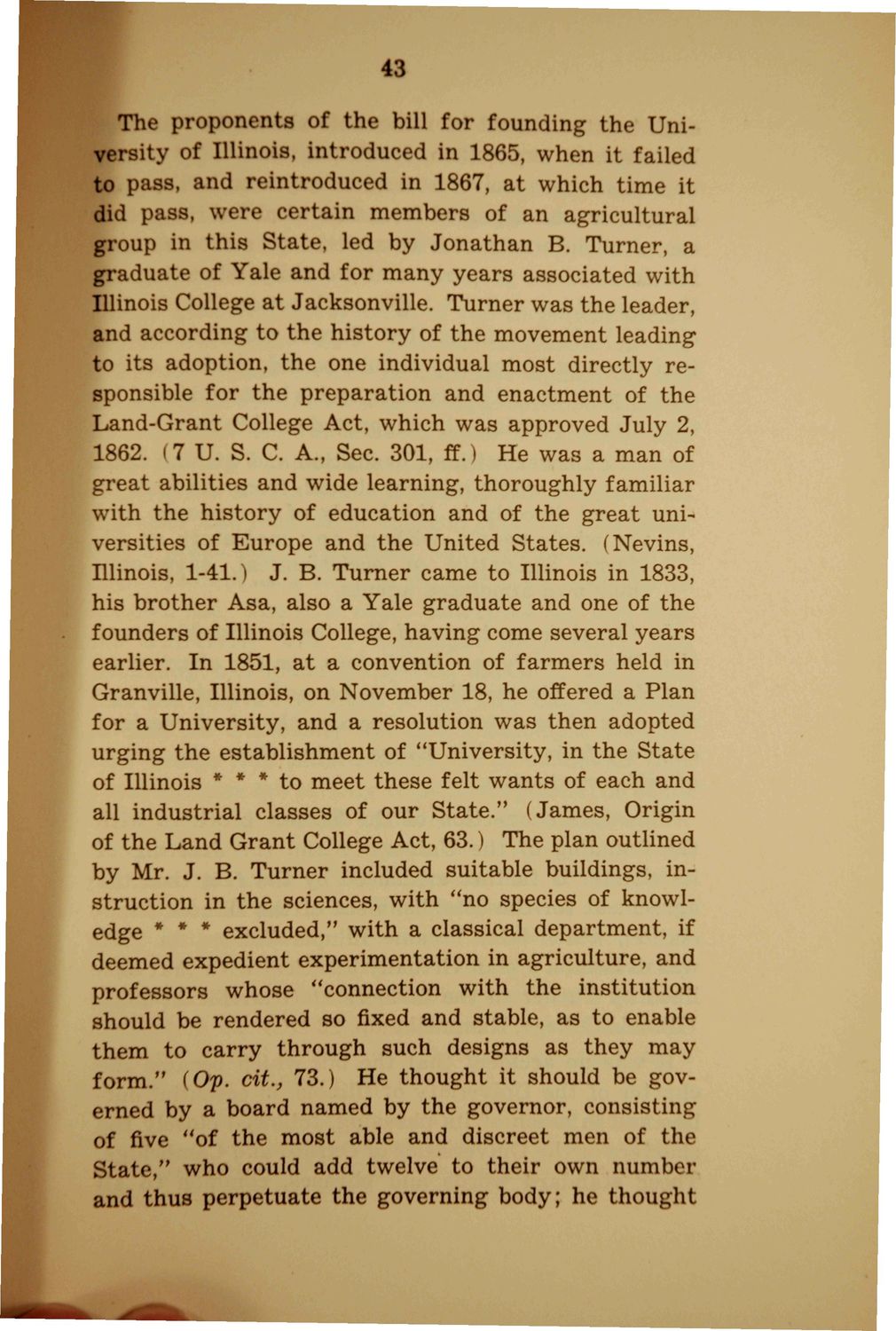| |
| |
Caption: Booklet - UI Charter of Freedom (1942)
This is a reduced-resolution page image for fast online browsing.

EXTRACTED TEXT FROM PAGE:
43 The proponents of the bill for founding the University of Illinois, introduced in 1865, when it failed to pass, and reintroduced in 1867, at which time it did pass, were certain members of an agricultural group in this State, led by Jonathan B. Turner, a graduate of Yale and for many years associated with Illinois College at Jacksonville. Turner was the leader, and according to the history of the movement leading to its adoption, the one individual most directly responsible for the preparation and enactment of the Land-Grant College Act, which was approved July 2, 1862. <7 U. S. C. A., Sec. 301, ff.) He was a man of great abilities and wide learning, thoroughly familiar with the history of education and of the great universities of Europe and the United States. (Nevins, Illinois, 1-41.) J. B. Turner came to Illinois in 1833, his brother Asa, also a Yale graduate and one of the founders of Illinois College, having come several years earlier. In 1851, at a convention of farmers held in Granville, Illinois, on November 18, he offered a Plan for a University, and a resolution was then adopted urging the establishment of "University, in the State of Illinois * * * to meet these felt wants of each and all industrial classes of our State." (James, Origin of the Land Grant College Act, 63.) The plan outlined by Mr. J. B. Turner included suitable buildings, instruction in the sciences, with "no species of knowledge * * * excluded," with a classical department, if deemed expedient experimentation in agriculture, and professors whose "connection with the institution should be rendered so fixed and stable, as to enable them to carry through such designs as they may form." (Op. cit., 73.) He thought it should be governed by a board named by the governor, consisting of five "of the most able and discreet men of the State," who could add twelve to their own number and thus perpetuate the governing body; he thought
| |